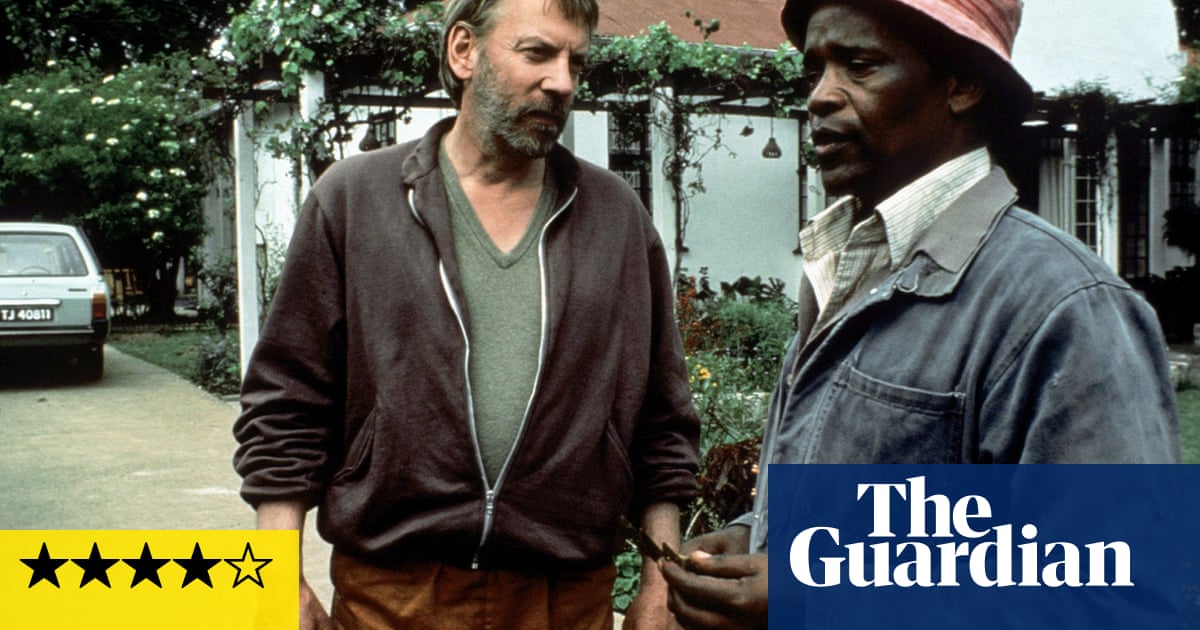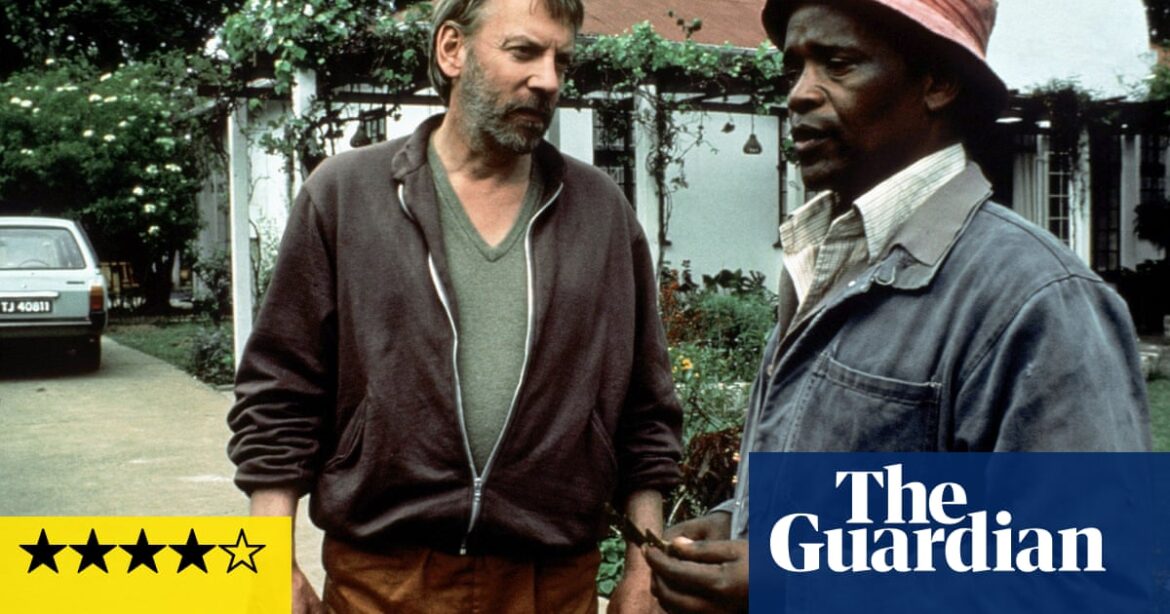
In the late 80s, there were a number of films about apartheid South Africa that somehow made the black experience dramatically subordinate to white liberal activism. Chris Menges’s A World Apart from 1988 had Barbara Hershey as the white campaigner based on anti-apartheid activist Ruth First; the year before that, Richard Attenborough’s excruciatingly well-intentioned Cry Freedom was supposedly about the friendship between white journalist Donald Woods (Kevin Kline) and Steve Biko (Denzel Washington), but contrived to put Woods at the centre of the action, all but forgetting about Biko. Euzhan Palcy’s A Dry White Season from 1989, now released on Blu-ray, looks on the face of it to be the same sort of thing. And yet this movie is much tougher and shrewder on what it would actually mean for white people in apartheid South Africa to side against their own caste.
Donald Sutherland plays well-regarded white schoolmaster and former rugby star Ben Du Toit, who lives comfortably and is entirely content with the racist world of South Africa; he is deeply troubled, however, when his black gardener Gordon (Winston Ntshona) tells him his son has been beaten and then taken away by police – and decent, thoughtful Du Toit is radicalised by what he finds out. Janet Suzman plays his thin-lipped wife who disapproves of her husband’s unaccountable and dangerous soft-heartedness. German star Jürgen Prochnow plays the chilling secret policeman Captain Stolz, while John Kani plays lawyer Julius, and Marlon Brando almost walks off with the whole movie as progressive barrister Ian McKenzie who is hired by Du Toit to challenge the brutal regime in court. This is a role showcasing Brando’s remarkably effective, quasi-Shakespearean English accent, which snaps his entire performance into shape.
Palcy shows us a world of betrayal: Du Toit’s aghast friends, relatives and colleagues feel that he has betrayed them. There is a rather remarkable moment when Du Toit literally slaps the headmaster’s face for calling him a traitor. But then members of Du Toit’s own family betray him, leading to a tense and painful scene with Du Toit’s daughter Suzette (Susannah Harker). The ending is far from happy and the film is at all events realistic about what a stand like Du Toit might actually cost. The torture scenes are very shocking and the film raises its game as a conspiracy thriller as the drama proceeds and the establishment realises that Du Toit is going to persist. It’s a film with a hefty supporting cast, with Michael Gambon as the presiding judge in the court case.
Yes, perhaps the world of black communities in Soweto is not fully imagined or inhabited here; the film also would fail a kind of racial Bechdel Test in that these characters are not allowed on screen together without a white person being there too, to mediate their existence with the white movie audience. Yet Palcy, perhaps crucially a person of colour and apparently the first black woman to direct a Hollywood studio film, is clear-eyed and without illusions about the flawed white saviours.
Source: theguardian.com



